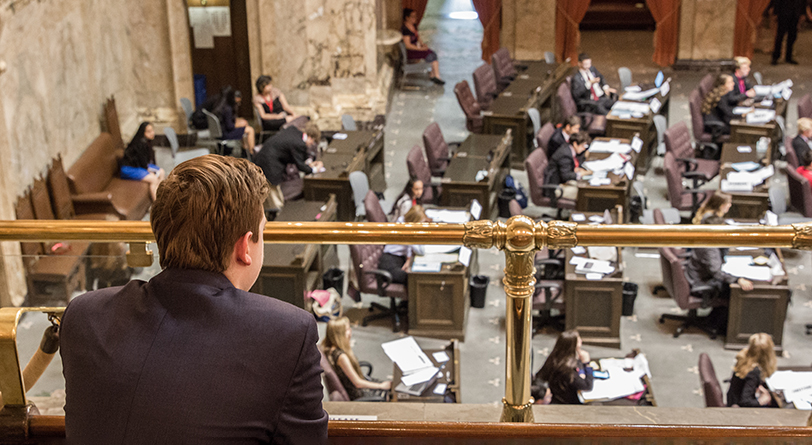New Year Brings New State Legislatures and New Packaging Bills

As we enter 2025, we are coming off a busy year, with Minnesota passing a new packaging extended producer responsibility (EPR) law and hundreds of other bills that were mostly defeated but would have created new mandates or banned certain types of flexible packaging.
We expect 2025 to be even busier with packaging issues, with new state legislators and legislative sessions on tap.
California
In 2024, we saw multiple ban bills in California, from plastic cups to plastic bags. A huge issue that we will probably see pop up again is a ban on per- and polyfluoroalkyl substances, polyvinyl chloride, and polyvinylidene chloride in plastic packaging that was in Assembly Bill 2761 from Gregg Hart, an Assembly member. With all the national discussions happening with the U.S. Plastics Pact, we will see either a reintroduction of Hart’s bill or some version of the U.S. Plastics Pact in California.
Hawaii
Over the years, the island state has been highly active in introducing EPR bills, packaging bans, enormous source reduction mandates, and packaging-to-landfill reduction bills. In 2024, we saw an EPR needs assessment bill, House Bill 1688 from state Rep. Nicole Lowen, that was an improvement from bills introduced in previous years.
As we enter 2025, we expect Lowen to introduce an EPR needs assessment bill that might be a reasonable first step in figuring out Hawaii’s recycling needs.
New Jersey
New Jersey continues to debate EPR, where the chairs of the environment committees in both houses, Sen. Bob Smith and Assemblyman James Kennedy, have introduced packaging EPR bills as Senate 208/Assembly 2094, which have subsequently been reshaped into Senate 3398.
These bills would mandate packaging to contain at least 65% post-consumer recycled (PCR) content by January 2036, as well as a 25% source reduction by 2032. All packaging would have to be recyclable, compostable, or reusable by January 2034.
Smith also introduced Senate 3135/Assembly 4367 which would ban numerous chemicals in packaging and establish an aggressive 50% source reduction mandate for plastics 10 years after the passage of the bill.
The success of the bills depends upon how hard Smith pushes for them before the legislature wraps up work in December 2025.
New York
The year 2024 saw one of the most contentious debates around EPR for packaging (Senate 4246/Assembly 5322) in the country. As we set up for 2025, we once again expect the chairs of each chamber’s environmental conservation committees to bring back packaging EPR bills fostered by the Beyond Plastics organization that have aggressive mandates for source reduction, recycled content, and recycling rates and that contain a convoluted process with an Office of Inspector General overseeing the producer responsibility organization and its program.
Given a strong 2024 Senate floor vote in favor of this concept, we expect the pressure to be even higher in 2025.
We also anticipate efforts to proactively introduce alternative proposals to create support for a more workable solution, as compared to the Beyond Plastics approach.
Tennessee
In 2024, EPR legislation was introduced by Democrats that—similar to Colorado—mandated that producers pay for 100% of the cost of the recycling system. What gives this bill greater interest has been the Republican majority party’s support and some support from local packaging industry players. This debate will again occur in 2025, and there will likely be greater pressure to try and convince Republicans that this issue is something they should not oppose.
Washington State
We expect dueling packaging proposals with opposing supporters. There will be an EPR effort similar to House Bill 2049 from state Rep. Liz Berry, who has become the legislative leader on packaging EPR. Another proposal will likely resemble House Bill 1900 by state Rep. Jake Fey, which was championed by the local waste industry and will have labeling requirements. It also proposed expanding the state’s existing PCR content law for plastic products.
The fate of these bills will be determined based on the power of the haulers to resist EPR or the ability of the champions of EPR in the legislature to overcome steadfast opposition from the hauling community.
State Regulatory Action in 2025
With California poised to adopt its Senate Bill 54 regulations by January 1, 2025, Maine and now Minnesota are the only two states likely to carry out significant rulemaking activity into the new year.
However, they are in different stages of their respective processes.
Maine already has solicited feedback on two drafts of its EPR rules, and now the public comments are being reviewed. There is no deadline for adoption, but the rules will eventually be considered for approval before its state Board of Environmental Protection.
Minnesota has its entire rulemaking process ahead of it. Initial work is ramping up now to prepare the state to develop rules, as well as a needs assessment, likely beginning at some point this year.
Editor’s note: The editorial credit for the feature image with this article is Michelle Baumbach/Shutterstock.com.
Andy Hackman is a principal lobbyist at the firm Serlin Haley, a lobbyist for the Flexible Packaging Association based in Washington, D.C. Gregory Melkonian is a regulatory and government affairs analyst for the firm.


